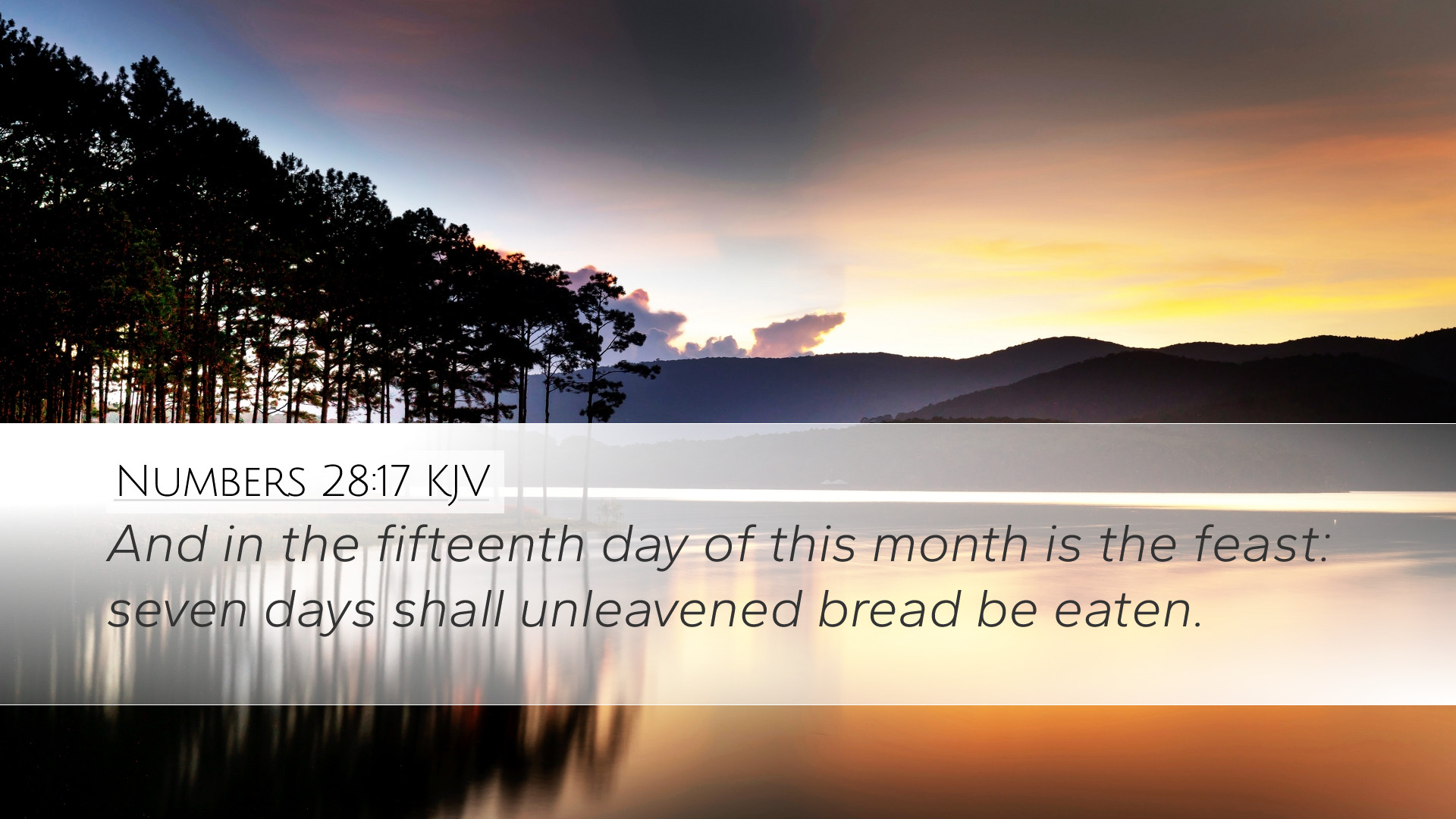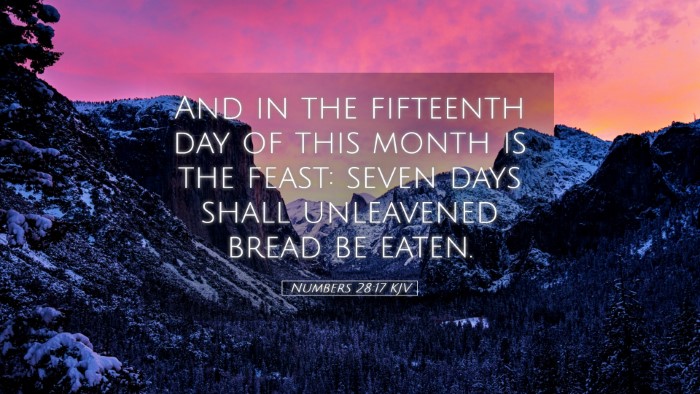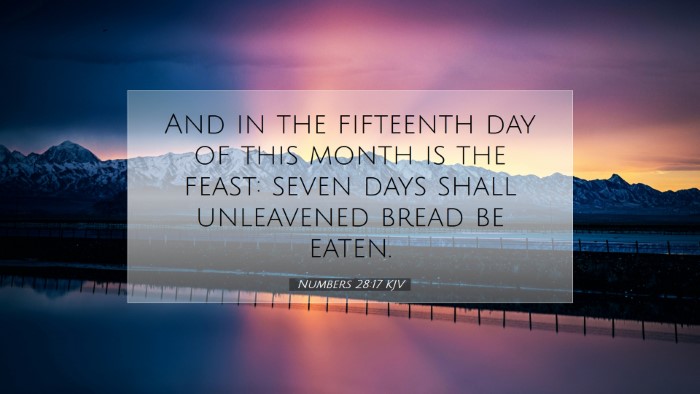Bible Commentary on Numbers 28:17
Verse: "And in the fifteenth day of this month is the feast: seven days shall unleavened bread be eaten."
Introduction
The verse presents an important decree regarding the observance of the Feast of Unleavened Bread, introducing it within the context of the biblical calendar. It signifies not just a historical event but also a theological foundation in the covenant relationship between God and Israel.
Thematic Significance
This verse speaks to the themes of remembrance, holiness, and sanctification.
- Remembrance: The Feast of Unleavened Bread is instituted to commemorate the haste of the Israelites' departure from Egypt.
- Holiness: The requirement of unleavened bread emphasizes purity and the absence of leaven, which in biblical typology often represents sin.
- Sanctification: The repetition of such feasts helped maintain Israel’s cultural and religious identity.
Commentary Insights
Matthew Henry
Matthew Henry notes that this feast serves as a potent reminder of the deliverance from Egypt. He emphasizes its significance in relation to the Passover, indicating that the two feasts are intricately linked. The unleavened bread represents the purity that God requires from His people, symbolizing both physical and spiritual deliverance from the corruption of sin.
Albert Barnes
Albert Barnes elaborates on the timing and the nature of the feast, asserting that the command to eat unleavened bread for seven days underscores the importance of careful observance. He points out that the feast serves not only as an annual celebration but as an ongoing call to holiness. The absence of leaven symbolizes the Israelites’ need to embody the values of the covenant they share with God, advocating for a life free from sin.
Adam Clarke
Adam Clarke provides a detailed examination of the practical aspects of the feast. He suggests that the seven days of unleavened bread serve as an opportunity for reflection on God's faithfulness. Clarke also connects the feast with New Testament themes, drawing parallels between the unleavened bread of the Old Testament and the body of Christ in the New, highlighting the complete absence of sin in Christ and the call for believers to pursue holiness in their lives.
Historical Context
This verse finds its place in the wider narrative of Israel’s journey from slavery to freedom. The Feast of Unleavened Bread occurs immediately following Passover, reinforcing the narrative of liberation. During its observance, families would gather, sharing in the memory of their ancestors and the covenant promises of God.
Theological Implications
From a theological perspective, the connections between this feast and Christ’s sacrificial death provide profound insights. Just as the Israelites were called to remove leaven from their homes, thereby symbolizing the removal of sin, so too are Christians invited to a life of repentance and renewal.
- Typology: The unleavened bread foreshadows Christ’s body, highlighting the necessity of a sinless Savior.
- Covenant Relationship: The feast underscores the ongoing covenant commitment God has with His people, reflecting the enduring nature of God’s promises.
Application for Today
For modern-day believers, Numbers 28:17 challenges us to examine our lives in light of holiness and remembrance. As we partake of communion and gather in worship, we are reminded to reflect on the significance of Jesus’ sacrifice and our own call to live in alignment with His teachings.
The need for spiritual purification resonates deeply within the context of the church today, urging Christians to seek a deeper relationship with God that transcends mere ritual observance.
Conclusion
Numbers 28:17 serves as a pivotal reminder of the importance of remembrance, sanctification, and holiness within the community of faith. By reflecting on the insights from esteemed commentators like Matthew Henry, Albert Barnes, and Adam Clarke, we gain a multifaceted understanding of the text, enriching our biblical theology and practical application.
In essence, the Feast of Unleavened Bread beckons us towards a deeper acknowledgment of God’s deliverance, encouraging a life marked by purity and devotion.


